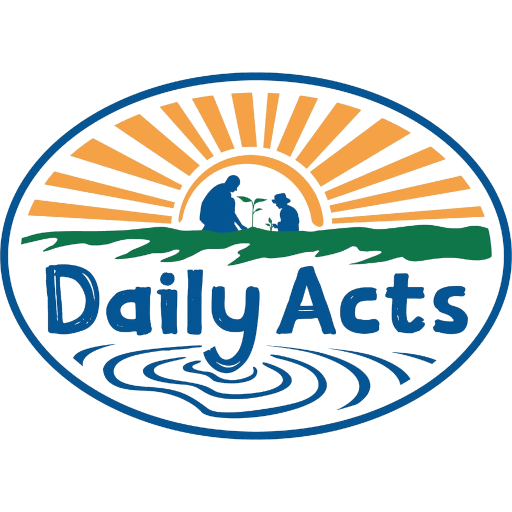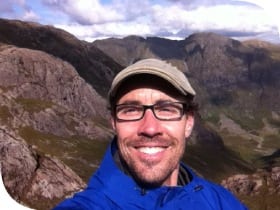A report from the International Permaculture and Transition Towns Conferences
The last few days and weeks have truly astonished me, which is why you are getting this extra email and a longer than normal blog from me. And it’s hard to believe that there is sooo much more to come in the next three weeks with this weekend’s Building Resilient Communities Convergence, then Bioneers, Mulchstock and of course, we want YOU at Ripple the World on October 29th! Gathering together to learn, connect, celebrate and transform is vital, healing balm for burnt, drought-stricken and hurting places and people.
On Tuesday I spoke with Youth Ecology Corp members as they transformed the Cotati City Hall landscape. Together with the support of Daily Acts, Conservation Corps North Bay and the Water Agency, these young folks have transformed 30 lawns in 30 days (and implemented 3 new amazing model sites). At the same time, a crew of volunteers and young leaders from Ceres Project sheet mulched at the Sebastopol City Hall and Library complex. Last weekend volunteers broke ground and set precedent by planting a model drought tolerant and edible landscape at the Foothills of Windsor Home Owner’s Association. A couple weeks before, it was a model food forest being planted at the Santa Rosa Junior College Campus in Petaluma. Are ya kidding me?
These are the kinds of stories I shared last month to a room full of opened hearts and blown minds from around the world at the International Permaculture Conference. From the Himalayas to Hong Kong to the tropical forests of Belize, people from over 70 countries gathered in London to learn, connect and organize at this two-day conference of permaculture, transition and sustainability networks. Beginning with poetry, we were reminded to feel this big planetary moment and the power of both what we are grieving and what we are dreaming into being.
Being a conference of eco-geeks we got a lesson in our planet’s evolution. We were reminded of the miracle of recycling, in which life grows itself by reusing its precious resources. After each major planetary change over billions of years, life has reorganized itself to leap forward. Permaculture co-originator David Holmgren affirmed this on a more recent timescale, siting waves of crises from the 70’s oil shock to the 1987 stock market crash and 911, which have propelled our environmental movements forward. With Daily Acts emerging out of the aftermath of 911 and then the sudden loss of my mom, I know well the power of crisis as a catalyst for positive heartfelt action.
After opening keynotes, I facilitated a panel on Regenerative Enterprise and then got to speak about YOU and the incredible work of Daily Actors and our community partners. When people heard about and saw examples of what you and this community are doing, they were ridiculously inspired and ready to turn your stories into their solutions in Chile, Norway, the villages of Gambia and elsewhere. In his talk, Geoff Lawton reminded us of the need to become more infectious and to infect others with the vision and tools to create radically life-rich systems able to withstand the weather and culture shocks we are experiencing. Good friend, amazing human and co-founder of the Black Permaculture Network Pandora Thomas gave a powerful presentation on the severe inequity towards communities of color in regards to incarceration rates and creating Pathways to Resilience for formerly incarcerated people. And this was only a few of the heart-stretching and inspiring speakers and connections.
After two days of conferencing, we moved to Gilwell Park for the week long Convergence, which follows the conference. We were organized into neighborhoods with a range of tents where community members presented and hosted sessions. Within the Convergence was a multi-day effort called the Next Big Step, which used Open Space for people to self-organize around topics that were most alive for them, with the guiding question of how we bring greater coherence to our movement to increase our positive impact. Key themes were Movement Strategy, organizing communities and collaborating across networks; Climate Change; Social Justice; Social Enterprise; Social tools and technologies; education and research.
As difficult as it was to leave the amazing connections and sessions on how to take this movement to the next level, I had the Transition Conference days later and a big schedule back home when I returned. So I peeled away and headed north, waking the next morning in the Scottish Highlands, stupefied by the beauty of glacially sculpted valleys. After tea, I headed up the road and went for a walk. As I climbed upwards, a cold cleansing wind whipped through the highlands carrying the sound of bagpipes echoing softly from the valley below where tourist buses were stopped. There’s a meditative simplicity in following a path step after step, pausing to catch your breath and soak in a vast, quiet landscape. At nearly each bend, the view somehow got more astonishing and expansive, imbuing me with a feeling of inner resonance and the reminder that such places help grow what is spacious and serene in us. It felt so nourishing that I just wanted to steep myself in a warm cup of these long, soft views forever or at least figure how to bring it back down with me.
While it was hard to step away from organizing, walking into the mountains feeds a different part of me. It’s some of how I make sense of things, taking my inspiration and resolve to new levels. Though with beauty can come hurt. The Lost Valley trail below my feet is famous for one of Scotland’s most brutal massacres. It’s where some of the MacLeod Clan escaped into the mountains, to keep their families and bloodlines alive. It reminds me that each of us has ancestors who generation after generation survived to get us here. Survival is in our DNA. We all stand on the shoulders and walk on the trails of those who’ve come before us, which is an important source of power to remember.
Just as I began to wonder if these rocky steps went up for forever, I came across a couple folks. Over a snack and nice views, we talked about enjoying nature, the challenging state of our world and the need to be and do different. Synchronistically, Jim had a Transition group in his town and expressed interest in getting involved after a short inspired chat about the vital work of small groups. Even our pauses sometimes create ripples. In a way this is a pause within a pause within a pause. These moments on the trail, this few days to renew between conferences, even this trip was a time to reflect, outside of life back home. After a few sweet days, it was time to head to South Devon for the Transition Conference.
The last time I was at the Conference four years ago, it was largely UK-focused, but a meeting of Transitioners from other countries was called. After dozens of people showed up, you could feel something in the air. It was time for the movement to take another step forward. So a small group of us gathered in the evening to brainstorm and Filipa Pimentel put herself forward to help coordinate this emergent network of National Hubs. Four years later, there’s a three-day gathering of National Hubs with 50 people from 20+ countries around the world that surrounded the weekend long conference.
Similar to the Permaculture Convergence these was a strong presence of self-organizing to host, facilitate and fill the content of the conference. It was amazing to see a buzz of conversation in big and small rooms and a whole conference of over 300 people from around the world rapidly adopting thing like hand signals to communicate. When a hand went up to call attention, other hands would quickly follow until the crowd would go silent, be it for conference logistics or spontaneous birthday wishes. Key themes were around social technologies and processes like Sociocracy; telling the story of our movement; organizing for the upcoming COP21 Climate Talks; Inner Transition and self-care; how we fund and build the capacity of groups and networks; and collaboration across movements. It’s no coincidence that these conferences were back to back.
My heart was heavy with the hurt of devastating fires back home and others felt and shared their community’s hurt, from refugee crises to war and collapsed economies. We must respond when crises emerge, but we also need to work to create a world that is more climate stable with healthier, more resilient communities and ecosystems, able to respond to and absorb such shocks. To deal with what’s urgent and bring our best to changing society’s source code, we need to make space for a different kind of hard work and heartbreak. We need nature and community connection, the hard work of walking up mountains and the beautiful hurt of achingly breath-taking views. Hard work, pain and heartbreak are fine; they are life. But to help life flourish, our spirits need to be nourished and renewed, and to affirm this truth, just as I wrote it, the sun broke through and warmed me for a long, quiet moment.
The gathering of movements isn’t just in far off places; it’s this weekend at the Building Resilient Communities Convergence, next week at Bioneers, and coming together at Mulchstock for music, celebration and the biggest lawn transformation ever. It’s also Ripple the World where your heartfelt support will truly power us into a more nourishing, connected and resilient future. So join us for one or for all and also peel away when you need to renew, be it for a moment, an hour or a deeper immersion into nature and self-care.


